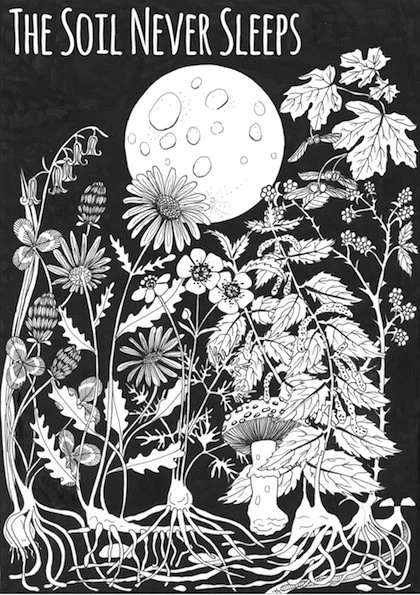The Soil Never Sleeps 2nd edition
The Soil Never Sleeps is the second full collection of poetry by Adam Horovitz, published by Palewell Press.
The first edition was released in January 2018. A second, extended edition with new poems from Exmoor, was published in August 2019.
The book is available direct from the author (and signed, if you wish it) via this link to my Square shop in the UK only, or can be ordered from any good bookshop. You will be charged £12.75, to include p&p. If you live outside the UK, please purchase direct from the publisher by clicking on this link.
The second, extended edition of The Soil Never Sleeps follows four PfLA farms, in Yorkshire, Cornwall, Kent and Wales, across four seasons and at two farms in Exmoor over two seasons. It takes an in-depth look at the workings of the farms, weaving the landscape, the animals and the farmers’ voices deep into the poetry.
It also follows a slightly clumsy poet as he learns more about the land, and the workings of it, than he ever expected to. It closes with a section digging into the ethics and politics of farming, deeply informed by the PfLA’s work and outlook.
It also features six exquisite illustrations by Jo Sanders, who illustrated Horovitz’s previous book, A Thousand Laurie Lees.
If you’d like to buy A3 prints of Jo Sanders’ exquisite illustrations from The Soil Never Sleeps, they are available from her Etsy shop, along with other beautiful examples of her work. Click here to visit her Etsy shop.
“Personal journal and public statement, lyric observation and prospectus for radical care of the land, this is life-writing in a fundamental sense. Like Ted Hughes’ Moortown or Sean Borodale’s Bee Journal, it is grounded in living the life, and doing the work, day by day, of a place. Unsentimental, many-angled, this is poetry to think with, not to lecture readers but ‘to open them / to the seeds of ideas’ that the earth sorely needs.”
Philip Gross
“At the heart of this undertaking is a willingness to learn, to be instructed, so as to understand more closely how people live and work and manage in their particular circumstances. The poems are learning in practice; and as the writer learns, and, with all the sensuous presence he can muster, sets down his gains in understanding, so we too, reading, learn. Adam Horovitz’s poems persuade you that something vital is at stake. His learning leads to this: there are better ways and worse of farming the land, more and less humane ways of owning and rearing animals. Truth is, we can’t afford to get it wrong much longer.”
David Constantine

